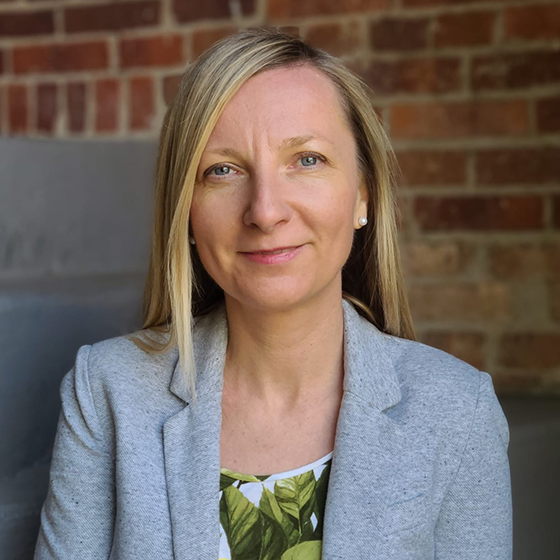Department of Sociology
Graduate Studies, Ph.D. in Sociology

Program Requirements
Our aim is to prepare students for all aspects of their career: research, teaching, publishing, grants and mentoring. Please visit the Course Catalogue for a complete requirements. Additional information about the program is provided in the Graduate Handbook.
The Ph.D. degree requires a total of 72 credit hours, including:
- at least 45 credit hours of graded graduate coursework,
- at least two substantive or theory courses with a SOC prefix of 600 or higher,
- at least two additional courses with a prefix of 600 or higher from sociology or a related discipline,
- one advanced research methods class,
- at least 9 credit hours of dissertation, and;
- the comprehensive examination followed by a dissertation.
Go Further
Meet Our Graduate Students


Anna Delapaz
Breastfeeding practices, maternal and child health, public health policy and programs

Anne Getz Eidelhoch
Dehumanization, social death, political extremism

Joshua Grove
Dehumanization, social death, political extremism

Iwona Franczak
Educational inequality, stratification, immigration, race and ethnicity, evaluation research

Mehdi Nejatbakhsh
Globalization, cosmopolitanism, national and cultural identity, political sociology, immigration and diaspora, the Middle East and Iran
Looking for Ph.D. dissertations?

Brooks Co-authors Chapter for Aging Studies Handbook
Sociology Ph.D. alumna Jennifer Brooks recently co-authored with Professor of Sociology Jennifer Karas Montez the chapter "“Educational Attainment and Adult Health" for the "Aging and the Social Sciences Handbook." (Elsevier Academic Press, 2020). Together, the authors examine the dynamic link between education—which the authors refer to as a “unique type of socioeconomic resource”—and health and well-being across age, place and time. Brooks received her C.A.S. in disability studies in 2019, and her master’s in sociology in 2017.
In Their Own Words
Hear from our sociology students and faculty what makes Maxwell so special.
With breadth and depth in subspecialties across the discipline—in a highly engaged interdisciplinary school of public affairs—the Sociology Department supports and empowers new scholars to develop knowledge, hone research skills and focus on what matters
to them most.
Explore Your Research Interests
With a low graduate student-to-faculty ratio and a small entering Ph.D. class, students will be immersed in a research culture of close collaboration.

Graduate students conduct meaningful research in Maxwell's 15 research centers, including:
- Aging Studies Institute
- Autonomous Systems Policy Institute
- Campbell Public Affairs Institute
- Center for Aging and Policy Research
- Center for Environmental Policy and Administration
- Center for Policy Design and Governance
- Center for Policy Research
- Center for Qualitative and Multi-Method Inquiry
- Institute for Democracy, Journalism and Citizenship
- Institute for the Study of the Judiciary, Politics and the Media
- Lerner Center for Public Health Promotion and Population Health
- Maxwell X Lab
- Moynihan Institute of Global Affairs
- PARCC (Conflict and Collaboration)
- Institute for Security Policy and Law
Funding Opportunities
Merit-based financial aid awards are available to support study in the Ph.D. program in the form of fellowships and graduate assistantships. Financial support is renewed each year for four years of study, subject to maintaining satisfactory performance in the Ph.D. program.
Fellowships
University Fellowship awardees receive a stipend and a full-tuition scholarship for 30 credits in their first and fourth years of study and receive a graduate assistantship in their second and third years.
Graduate Assistantships
Ph.D. students have the option to obtain teaching and research experience through graduate assistantships, which are renewed each academic year. Assistantships include a stipend, a full graduate tuition scholarship, and a subsidy toward health insurance coverage for the year.
Departmental Support
Sociology and related research centers have a strong record of securing grants from external agencies and foundations that allow the department to provide research assistantships for high-performing graduate students.
Future Professoriate Program
The Future Professoriate Program (FPP) aims to foster a sense of community among graduate students while allowing them to hone skills related to teaching, research and professional identity development. The purpose of the FPP is to help graduate students develop professionally by means of workshops, annual in-house conferences and a mentored independent teaching experience. Students who complete these activities and produce a teaching portfolio can receive the University’s Certificate in University Teaching. These endeavors are seen as complements to the training in scholarship and teaching that are regular parts of graduate education.


Social and Cultural Effects of Globalization
Adrienne Atterberry, Ph.D. alumna in sociology, received the Chancellor’s Citation Award for Excellence in Student Research for her work examining the social and cultural effects of globalization. Her dissertation project examines the global crisscrossing movements of highly skilled professionals and their families. It specifically focuses on how such movements affect professionals’ parenting practices, as well as youths’ understanding of their identity and sense of national belonging.